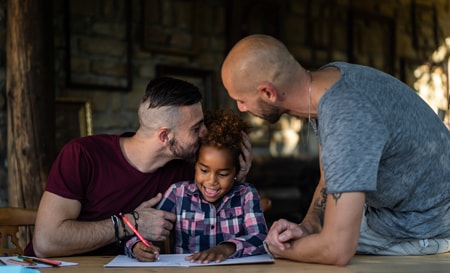Why are discipline and consequences important?

From time to time, your child is going to do things you don’t like. They’ll also do a lot of things you do like. The consequence, or what happens right after your child’s behaviors, makes the behavior more or less likely to happen again. Consequences can be both positive and negative.
Positive Consequences
Positive consequences show your child she has done something you like. Your child is more likely to repeat the behavior when you use positive consequences. Positive consequences include things like:
- rewards
- praise
- attention
Use positive consequences as much as possible for behaviors you would like your child to do again. Click here for more information on rewarding, praise, and attention.
Negative Consequences
Negative consequences let your child know you do not like what she has done. Your child is less likely to repeat the behavior when you use negative consequences. Negative consequences are also called discipline. Negative consequences include things like:
- ignoring
- distraction (i.e. getting your child to focus on something else)
- natural consequences (e.g. your child is playing roughly with a toy and the toy breaks)
- delay of privilege (i.e. your child has to wait to get something they really want)
- loss of a privilege, “common sense consequences” (i.e. you take away a privilege)
- time-out
Use negative consequences for behaviors you would like your child to stop. It’s a good idea to start with ignoring and distraction, especially for young children. Other consequences may be needed if ignoring and distraction don’t work or are not possible. Delay or removal of privileges, and time-out can be used to stop misbehavior. Click the following links for more detailed information about Ignoring and Time-out.
Check out Quick Tips and Answers from Experts for more info about discipline and consequences!
Click through the links below to watch videos and practice your skills for using discipline and consequences.
Watch Videos
Practice Skills